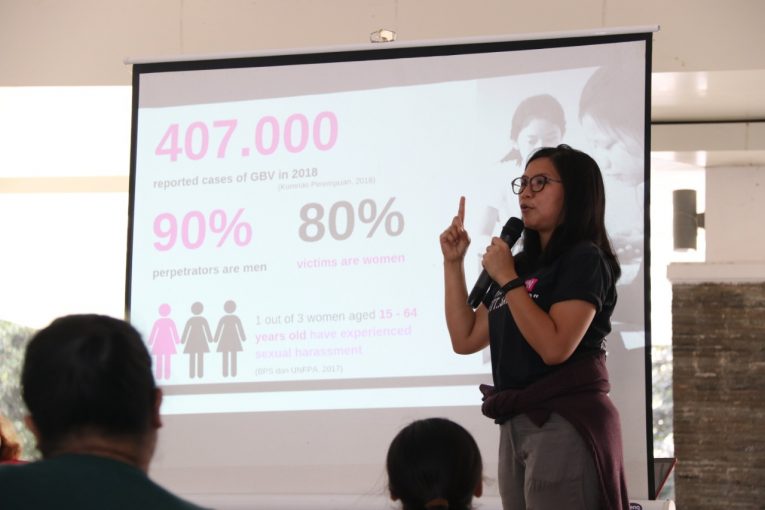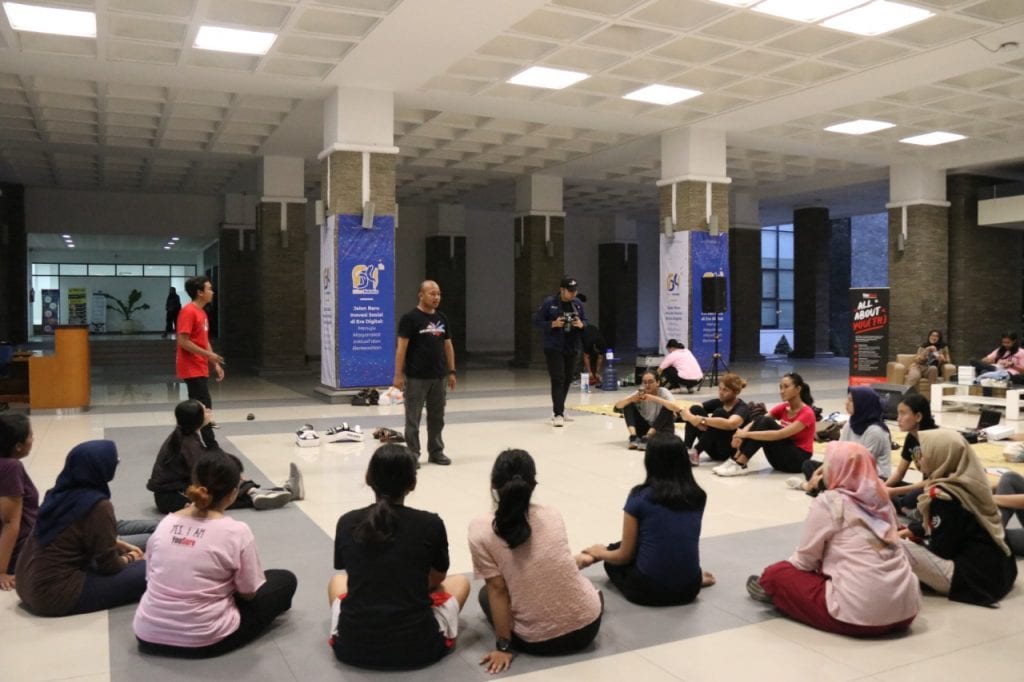
Yogyakarta, 29 October 2019—In order to raise awareness of the youth on gender-based violence, YouSure held a discussion entitled “The Youth and Safe Space Crisis: The Need to Raise Awareness on Gender-Based Violence.” This type of violence can occur at anytime, anywhere and to anyone. An abusive relationship is an example of a gender-based violence that happens in someone’s private life, while cases of groping in public transport is an example of gender-based violence that happens in public spaces. This discussion was held last Tuesday (29/10) at the West Hall of Fisipol to commemorate the Youth Pledge day.
Fitri Mayang Sari, from Hollaback Jakarta, and Amelinda Pandu, from Feminis Yogyakarta and also a survivor of an abusive relationship, were the main speakers of this discussion. Safe space crisis, advices on facing gender-based violence and tips on what do if you are witnessing a sexual harassment being committed were the main focus of this discussion. Moreover, abusive relationships and gender-based violence in public spaces were also discussed.

Dating is a common thing for the youth. However, such relationship is not always free from gender-based violence. In 2017, there were 1,873 reported cases of gender-based violence in relationships. This is only the reported number, as the actual toll can be far higher due to cases being unreported. “Gender-based violence in a relationship is rarely heard of within the Indonesian society. Hence, this creates a sense of confusion for the victim, not knowing where to seek protection from,” Amelinda stated.
Meanwhile, Fitri focused on gender-based violence in public spaces. Her organization, Hollaback, is a global social movement that fights sexual harassment. They advocate gender equality and raise public awareness on this matter.
When witnessing a sexual violence that is taking place, a bystander can also help to combat this act of violence. Fitri introduced the concept of 5D for bystanders: direct, distract, delay, document and delegate.
A bystander can directly warn the perpetrator, distracting his/her attention, delaying the act of violence by starting a conversation with the perpetrator, recording or taking pictures of the situation and of course, reporting the incident to the authorities.
